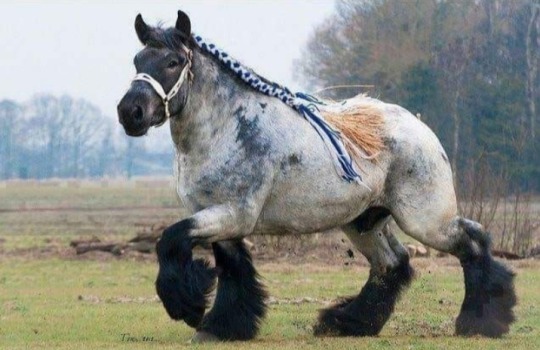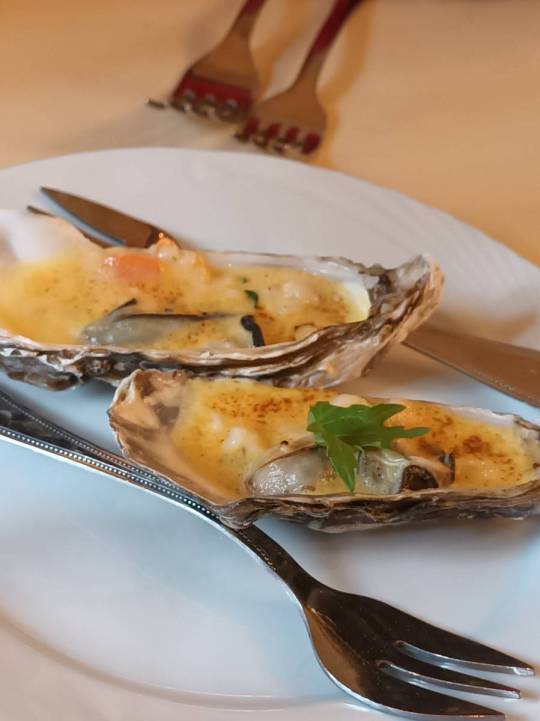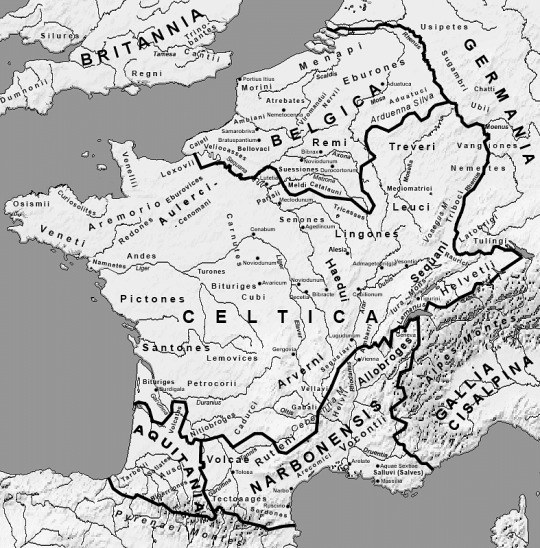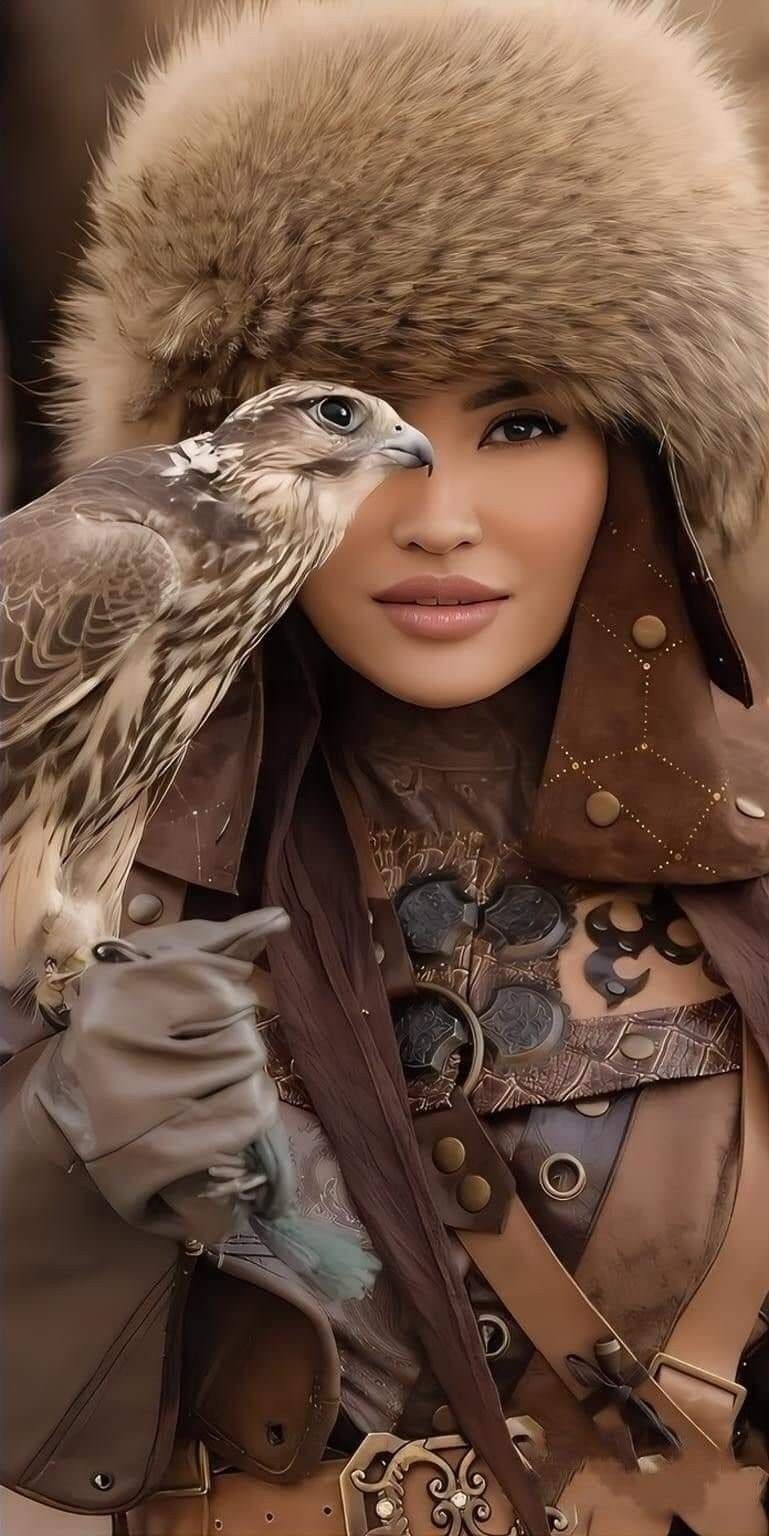#commentarii de bello gallico
Text

The Ardennes Draft Horse or Ardennais is considered one of the oldest breeds of draft horse.
Their history reaches back to Ancient Rome. The Ardennes breed could be a direct descendant of the prehistoric Solutré horse.
It is claimed to be descended from the type of horse described by Julius Caesar in his Commentarii de Bello Gallico.
Caesar described these horses of Belgium as "rustic, hard and tireless." He recommended them for use in heavy cavalry units.
The early type was used by many later Roman emperors for military applications.
The breed's ancestors are thought to have been bred for 2,000 years on the Ardennes plains. It is one of the oldest documented European heavy draft breeds.
They weigh 700 to 1,000 kilograms (1,500 to 2,200 lbs).
#Ardennes Draft Horse#Ardennais#draft horse#Ardennes breed#Solutré horse#Ancient Rome#Julius Caesar#Commentarii de Bello Gallico#Ardennes plains#European heavy draft breeds#horses#animals#horse breeds#Ardennes#war horses
26 notes
·
View notes
Text
“the evil that men do lives after them” yeah I have to read Commentarii de Bello Gallico 2,000 years after Caesar died.
#commentarii de bello gallico#julius caesar#gaius julius caesar#friends romans countrymen#dante dicit#school#latin
3 notes
·
View notes
Text
Austern aus Cancale mit Miesmuscheln und Champagnerschaum
Dieses Rezept aus Cancale stammt von der Exil-Deutschen Manuela Methner. Laut einem Tourismus-Informationsportal darf sich das Städtchen mit etwa 5.400 Einwohnern rühmen, als die Perle der Smaragdküste bezeichnet zu werden und gilt als die Austernhauptstadt Europas. Hier werden auf fast 400 Hektar die delikaten Schalentiere gezüchtet und geerntet.
Abb.: Cancale; Bildquelle: Wikipedia
Cancale…

View On WordPress
#Aremorica#Asterix Austern#Austern#Austern aus Cancale mit Miesmuscheln und Champagnerschaum#Cancale#Commentarii de bello Gallico#Debrit ervat#Dorf des Asterix#Foodblog#Manuela Methner#Muscheln Bretagne#Rezept Austern#Rezept Austern Bretagne#Rezept Austern Champagner#Veleihnix
1 note
·
View note
Quote
razib linked to wikipedia’s page on the gallic wars today, so i read it again.
it is of course anti-caesar. several times it references a “historian” named henige, in such a way as to allow the reader to believe he’s an expert, who claims that the entire work was inaccurate propaganda. this disagrees with the consensus of the landmark edition — propaganda yes; inaccurate, not in the essentials.
henige turns out to be the “academic librarian” at u.w. and his research is in “african studies”
flagamuffin
1 note
·
View note
Text
Yan!Julius Caesar Random Headcanons
❝ 📜— lady l: I love writing these random headcanons and if you guys want more historical characters feel free to send them! If you're curious about how he is yandere, I posted a general headcanon of him, which you can read by clicking here. Here are historical facts and some additional ones from my head. I hope you like it and good reading!! ❤️
❝tw: not entirely historically accurate and perhaps murder (?).

Julius Caesar was born in 100 BC and became an important Roman military and political leader. His conquest of Gaul (present-day France) and his successful campaigns contributed to his rise to power.
In 44 BC, Julius Caesar was appointed dictator for life by the Roman Senate. This move sparked concern among senators, leading to a plot that resulted in his assassination on March 15, 44 BC, known as the "Ides of March". The man did not last long as a dictator.
Julius Caesar played an important role in reforming the Roman calendar. The Julian calendar, introduced in 45 BC, was an adaptation of the lunar calendar to the solar year, forming the basis of the modern Gregorian calendar. So much so that the month of July is in his honor.
Julius Caesar formed a political alliance known as the First Triumvirate with Pompey and Crassus. They shared power and influence to advance their political and personal agendas. It didn't last long because soon they started fighting each other for power. A yandere obsessed with power, I dare say.
Julius Caesar is known for writing "Commentaries on the War in Gaul", also called as Commentarii de Bello Gallico, a series of accounts of his campaigns in the region. These writings offer valuable information about military tactics and life at that time. A great military commander and also a great fanfic writer.
There are reports that say that when he was 30 years old, he passed in front of a statue of Alexander the Great and wept because he had reached the same age and had not conquered as much as the Macedonian King. An inferiority complex, I would say.
The title "Caesar" became a dynastic name used by many Roman leaders after Julius Caesar. The first Roman Emperor, Augustus, was his nephew and adopted heir, and he adopted the title "Caesar" as part of his name. A curious fact is that many Brazilians have Caesar (César in portuguese) in their name.
In addition to his military achievements, Julius Caesar had a deep taste for literature and writing. He frequently exchanged letters and discussed poetry with various intellectuals of the day. A true cultured man and a renaissance ahead of time.
The death of Julius Caesar was one of the key events that contributed to the fall of the Roman Republic and the subsequent rise of the Roman Empire. His legacy has had a lasting impact on history and politics. Our man is credited as one of the greatest military commanders of all time.
Rumor has it that Julius Caesar had a secret superstition of avoiding black cats, believing them to bring bad luck. This contrasted with his image as a fearless leader. Poor kitty, so many powerful men were afraid of cats.
#history#yandere historical characters#yandere julius caesar#yandere julius caesar headcanons#julius caesar#headcanons#yandere headcanons#yandere history
138 notes
·
View notes
Note
Know any good sources on Celtic (specifically Gaulish practices)? I know it’s not your area, but you seem like someone who might know some people who dabble in that sort of stuff. The area I live in has some celtic archeological sites, but sadly not much is known about the local religion or culture. I am trying to put together a Romano-Celtic hearth cult, but it’s difficult finding practices and deities that feel right.
Gaul is a larger Celtic area of Western Europe (modern-day France and parts of modern-day Belgium, Germany, and Northern Italy). I say this because the Celts, when invaded by Rome, took in a lot of Roman religion including Hellenic and (rarely) Kemetic beliefs as well. When the Celts did this, so did the Gauls.
If it helps at all, the specifics you're looking into is called Gallo-Roman, which is part of the larger Romano-Celtic area.
This selective acculturation manifested in several ways. One of the main ways we see this is with the melding of Greco-Roman deities with Gaulish (Celtic) deities. Gaulish epithets for Roman gods (Jupiter Poeninus) and Roman epithets for Gaulish gods (Lenus Mars). Roman gods were given Gaulish god partners (Mercury and Rosmerta & Apollo and Sirona). Towards the east of the Gauls, many mysteries were formed, including one for the Greek hero Orpheus, the Iranian (or Persian) god Mithras, and the Egyptian goddess Isis. In other words, a whole lot of syncretism.
When it came to the Gauls (and the Celts overall) a main part of their belief system was the heavy use of animal imagery. More specifically, zoomorphic deities. However, we see a lot more human-looking representations of the gods because the Romans (and Greeks) weren't too keen on the idea (see Greco-Egyptian).
As for specifically Gallo-Roman hearth religious beliefs, the Lares (Lar singular) is a good place to start. They're the equivalent of Agathos Daimon in Greek religion (Hellenism). Essentially, they're personal household deities that are connected to the hearth.
A majority of the information we have about the Gaelic culture and the eventual melding of the Gallo-Roman culture stems from two sources: artifacts and Julius Ceasar, who wrote all about in what we now call the "Commentarii de Bello Gallico". The gods that he mentions the Gauls worship (like Jupiter, Mercury, Mars, and Minerva) aren't really the Roman gods that the Gauls are worshipping at that time but rather the closest thing Ceasar can connect. For example, Caesar may say that the Gauls worshipped Mars, when in reality they were worshipping Lenus, a healing god that quickly became associated with Mars because of Caesar and the Roman Empire. However, not all of them were caught. Gobannus is the most well-known example we have, with him being the equivalent to the Roman god Vulcan or the Greek god Hephaestus and yet Caesar makes no comment on the Gaulish god.
One other thing, the specific time we are taking a look at was prior to the overtaking by the Anglos, Saxons, and Jutes (aka pre-Anglo-Saxon times). Because of this, Germanic (Norse) gods weren't known to these people yet. Odin, Thor, and Freyja were unknown to them at this point in time.
Other than that, the last thing I can give to you are articles and books that I stumbled upon that may pique your interest. I do recommend a couple of Wikipedia links, but just know that I recommend using Wikipedia as a jumping-off point. Hope this helps! :^)
Becoming Roman: the origins of provincial civilization in Gaul -- Greg Woolf
https://archive.org/details/becomingromanori0000wool
The gods of the Celts -- Miranda Green
https://archive.org/details/godsofceltsar00mira
Gallo-Roman Religious Sculptures -- A.N. Newell
https://www.jstor.org/stable/640758
Fifth-Century Gaul: A Crisis of Identity? -- John Drinkwater & Elton Hugh
https://www.loc.gov/catdir/samples/cam031/91018375.pdf
Caesar's Commentaries on the Gallic War: literally translated -- Frederick Holland Dewey, A.B.
https://archive.org/details/caesarscommentar07caes
Category:Gaulish gods -- Wikipedia
https://en.wikipedia.org/wiki/Category:Gaulish_gods
Category:Gaulish goddesses -- Wikipedia
https://en.wikipedia.org/wiki/Category:Gaulish_goddesses
sources:
https://bmcr.brynmawr.edu/1999/1999.10.34/
http://www.deomercurio.be/en/dii.html
https://www.britannica.com/topic/Celtic-religion/The-Celtic-gods
https://en.wikipedia.org/wiki/Lares
https://www.britannica.com/topic/Lar-Roman-deities
https://en.wikipedia.org/wiki/Gallo-Roman_culture
https://en.wikipedia.org/wiki/Gallo-Roman_religion
#ask#witch#witchcraft#witchblr#pagan#celtic#gaulish#roman#celtic deities#celtic pantheon#gaulish deities#gaulish pantheon#roman pantheon#roman gods#ancient rome#gallo-roman#romano-britain#romano-celtic#hearth
37 notes
·
View notes
Text
Julius Caesar’s Commentaries on the Gallic Wars (Commentarii de bello gallico) are essentially campaign logs, written by Caesar (and Aulus Hirtius for the last book) to the folks back home in order to keep up his political support during his nine years in Gaul. While Gaul (modern France) doesn’t seem exotic to us, you want to keep in mind that this was a region of the world the average Roman knew little about, so Caesar feels he has to do a fair bit of ethnography: who are the people who live here, what are they like, and why is Caesar so intent on killing basically all of them
-Bret Devereaux, The Fremen Mirage
26 notes
·
View notes
Note
-if you could only watch one movie for the rest of your life and couldn't access any other media, which would it be
-what's your favorite ancient rome fact and how do you think marius feels about it/how did it affect his life!
dsjg;dsg lord what a hard question i couldnt ansewr this last night because it stressed me out, I had to sleep on it.
I THINK MAYBE THE DEPARTED? It's not my very favorite film but is A favorite, I've also watched like 1000+ times, enough to know all the words, and I'm not sick of yet. I think perhaps it's got useful efficiency for this scenario because it's long and has a lot of elements I really enjoy and has a great soundtrack!!! And imo is just really perfect storytelling, it's a movie I can study. I think if I could only watch one movie forever but I was still gonna be writing all the time it would be helpful to have it as a reference. 😂
IDK IF THIS ANSWER IS CHEATING BECAUSE IT'S MORE ABOUT GAUL AND THE KELTOI LMFAO BUT I've been ruthlessly obsessed lately learning about how druids didn't believe in written history and so much of what we know about them is from Roman observers and like full of misinformation and propaganda and disdain for them ! I think it's really clever that Marius even continues this as a Roman character where everything HE has to say about Mael is full of disgust and impatience, vs what Jesse has to say about him.
And like obviously this affected his life quite a bit when it comes to his understanding of his mother's side of the family and even like, arrogantly wandering into Gaul and not taking Mael seriously, and like NOT TO VICTIM BLAME HIM LOL but I wonder how much WORSE it made his year of captivity. I mean that to say like, it's bad ANYWAY, obviously lmfao, but it makes me wonder how much extra psychological duress it caused and extra stages he would've gone through between "I can't believe I've been abducted by these FOOLS I am ashamed" and then after living amongst them and understanding they DO have a culture "So much of what I thought I knew was a lie and it caused me my life".
He's a character that, throughout canon, is pretty profoundly stuck in his turning trauma, to the point that its in his character design DNA, and I wonder if it's like one of the ONE THINGS he still can't get over, or can't admit out loud. I wonder how stubborn he is about historical texts--I think in general he's a person who is often going "nah lol I was there, that's not how it happened" but with Gaul and the Keltoi I wonder if he's been able to reconcile every time something from Commentarii de Bello Gallico gets proven to be complete bullshit. (Perhaps even stuff he witnessed firsthand while he was captive!)
#i regret my answer idk it could also be T2 ;.;#obviously i would survive if it was IWTV because i did watch it like multiple times a day for years as a teenager LMAOOO#but im trying to think outside the box here
3 notes
·
View notes
Text
The Druids ~

The Druids were a priestly class in Britain, Ireland, Gaul and possibly other parts of Celtic Europe and Galatia during the Iron Age and potentially even earlier. Information about these mystical ones is quite obscure. They left no written accounts about themselves and the aspects attributed to them are derived from descriptions left by Greek, Roman and various scattered authors and artists over time.
While archaeological evidence has been uncovered pertaining to the religious practices of Iron Age peoples, no artefacts or images have been unearthed that can undoubtedly be connected with the Druids.
Various recurring themes emerge in a number of the Greco-Roman accounts extant, typically including that they performed human sacrifice, believed in a form of reincarnation and that they held a high position in Celto-Gaulish society.
Various passages within the writings also report of what would now be termed homosexual acts among them and a culture of homo-eroticism within their class which related to the warriors with which they seemed closely associated - perhaps a sexo-spiritual element of nature/power/fertility/virility-based beliefs. Little is actually known about their practices, except for their “ritual of oak and mistletoe” as described by Pliny the Elder. Sexual workings may have held a place in their ceremonies and it is thought by some likely that they held semen vitally sacred as the essence of life.
The earliest known reference to the Druids dates to 200 BCE, although the oldest actual description comes from Caesar in his ”Commentarii de Bello Gallico” (50’s BCE). Later, other Greco-Roman writers also described them including Cicero & Tacitus as well as Pliny.
Following the invasion of Gaul by the Romans, Druidism as a practice or religious construct was suppressed by the government under the 1st-century emperors Tiberius and Claudius. After this imposition, references of it disappeared from the written record by the 2nd century.
There are also stories created by later medieval writers. In about 750 CE the word “Druid” appears in a poem by Blathmac, who in writing about Christ says that he is “better than a prophet, more knowledgeable than every druid, a king who was a bishop and a complete sage.”
References also appear in tales from potentially Christianised Ireland. The Druids are characterized in the famous Táin Bó Cúailnge largely as sorcerers who opposed the coming of Christianity.
In the wake of the Celtic revival during the 18th and 19th centuries, fraternal and Neopagan groups were founded based upon ideas about the ancient ones in a movement which is now known as Neo-Druidism…
image Draia
13 notes
·
View notes
Photo

Gaule
La Gaule (latin Gallia) était le nom donné par les Romains aux territoires où vivaient les Celtes Gaulois (latin: Galli), comprenant l'actuelle France, la Belgique, le Luxembourg et certaines parties des Pays-Bas, de la Suisse, de l'Allemagne sur la rive ouest du Rhin, et de la plaine du Pô, dans l'actuelle Italie. Les anciennes limites de la Gaule étaient le Rhin et les Alpes à l'est, la Mare Nostrum (mer Méditerranée), la plaine du Pô et les Pyrénées au sud, et l'océan Atlantique à l'ouest et au nord. Avant la conquête romaine par Jules César (58-51 av. J.-C.), le nom de "Gaule" correspondait à un espace culturel et militaire fondé sur une religion commune et des fédérations de peuples qui pensaient avoir une origine commune. Cette origine commune remonte probablement au VIIIe siècle avant notre ère, lorsque des groupes de migrants de la civilisation dite "des champs d'urnes", datant de l'âge du bronze, se répandent lentement sur le territoire de la future Gaule. Vers 390 avant notre ère, les Gaulois envahirent et mirent à sac Rome. En 222 avant notre ère, la Gaule cisalpine (la région située entre les Alpes et la vallée du Pô) fut conquise par les Romains. La meilleure description que nous connaissons de la Gaule préromaine se trouve dans le premier chapitre des Commentarii de Bello Gallico, (Guerre des Gaules) de Caius Julius Caesar. Il s'agit clairement d'un point de vue romain sur les réalités gauloises:
Lire la suite...
3 notes
·
View notes
Text
the fact that the commentarii de bello gallico are like an actual scientific source for the gallic wars is so insane to me actually
5 notes
·
View notes
Text
Five Things You Might Find In My Fics
Thank you for the tag, @mercurygray! It’s always good, if a little mortifying, to pick out the common threads.
1. Someone is having the worst day of their life so far, and it’s probably on a ship. Or adjacent to a ship. Adjacent to the water, at least.
2. At least once, characters’ deeply-held beliefs will put them in moral conflict with their romantic interests.
3. Character A is reading an essay/novel/poem/play, and both they and Characters B-Z will comment on either the reading material itself or Character A’s relationship with it, or their own relationship with it or understanding of it. There’s a 50/50 shot of both whether I will explain the reading material, and whether I will ever explain WHY we’re interrupting the narrative to talk about American Civil War doggerel poetry, or Commentarii de Bello Gallico. You just gotta trust me that I needed to allude to Voltaire’s essays on the Society of Friends in England in this PotC fic.
4. Depression and one hundred and one ways how to badly cope.
5. I use the word “too” too much. Much love to @theonlyredcar, who points it out every chapter and fic I send her, and does not sigh too much when I promise to mend my ways. We both know I’m lying.
Tagging the lovely @theonlyredcar, @sagiow, @fatherramiro, @starsuncounted, & @jomiddlemarch - and whoever else wants to hold up the mirror!
13 notes
·
View notes
Text
Honestly, I’m so glad that I live in a time and place where people don’t get crucified or burned alive.
#like ig people still get burned alive#but like... relatively infrequently#compared to history#crucifixtion#immolation#commentarii de bello gallico#i was supposed to have books 6 and 7 read two-three weeks ago but idk the english is just so dry#ironically im finally reading it today on my mental health day but it actually makes a lot of sense for me#usually my mental health days are more like Work From Home days bc i just get burnt out following the school schedule#and when im behind on things i get So anxious and impostor syndrome to hell#so like a nice day to catch up at my own pace and feel like i *can* take a break is really all i need#i don't need to like sit and do nothing i just need to feel like that's an option#dante dicit
3 notes
·
View notes
Text
cavete idus martias, omines! have a chapter on caesar's commentarii de bello gallico (commentaries on the gallic war).
caesar (yeah, that one) wrote this as a record of/propaganda about his war in gaul. i don't trust it as far as i can throw it, but i do find it fascinating.
this chapter's themes are war, responsibility, and the other. the passages are the description of gaul at 1.1–9, things going wrong at 5.24–37, and caesar's dubious ethnography at 6.13–24, plus a bonus bit of caesar being wrong about animals at 6.25–28.
(previous chapters: homer’s iliad | aeschylus’ agamemnon | vergil’s aeneid | cicero’s against catiline | seneca’s apocolocyntosis | ovid’s heroides | sappho's extant fragments)
#with this chapter i pass 30k! this one alone is 5k#ides of march#<-this is not my ides tag but i really wanted the little knife animation#cavete idus martias omines#classics#latin#classical lit for fandom purposes#mea res
8 notes
·
View notes
Text
I'm back from my Covid hiatus, have a small drabble in return!! I hope you are all doing well!! 🥰💖
Lewis/George - Private School AU
“He’s doing that on purpose, isn’t he?” Lewis grumbles, a deep scowl on his face. Valtteri comments it only with a short grunt, not even bothering to look up from his textbook. “Look at him, he’s definitely doing it to annoy me.”
“Lewis,” The blonde sighs, amusement swinging in his voice. “He’s just sitting there.”
Yes. George is just sitting there, on the terrace of their school’s library, eyes closed, facing the warm August sun high up in the sky. A perfect picture of false innocence.
The first two buttons of George’s white dress shirt have been opened, giving a nice view on the slightly tanned skin of his neck and collarbones below. The shirt is tucked into the dark red skirt of their school uniform, accentuating his thin waist nicely while his long legs, smooth and just as perfectly tanned are lazily stretched out. Expensive black leather boots finishing the outfit, pristine white socks just peeking out above the rim. Everything about it drives Lewis insane.
George’s head rolls to the side and the younger student opens one eye, obviously having felt that he’s been watched. He winks at Lewis, a lazy smirk spreading over his lips. He knows that George knows what he’s doing.
“I hate him.”
“Sure you do.” Valtteri says dryly, turning the page in front of him. “In fact, you hate him so much, you want to shag him.”
“I hate you too.”
Lewis turns back to his own book, a text in Latin staring back at him in a mocking manner, the harsh sounding words dancing in front of his eyes. The weather is far too nice to spend it with studying already, so close after their summer holidays. But Lewis is in his final year, mock exams are already knocking at the door and the teachers didn’t hold back in handing out homework. Which lead to him and Valtteri fighting their way through one of the many battle descriptions from Caesar, just so few days after the sweet life of doing nothing and endless relaxation.
He doesn’t get far though, thin arms slinging around his neck and George’s sweet, flowery parfum scent tingles in his nose. “It’s the first week after the summer holidays, why are you buried in a book?”
“I have exams,” Lewis grins, leaning against George, soaking in the warmth of the other. Across from him, Valtteri makes a gagging noise. George simply throws a marker at the Finn.
“I have too,” George says smartly. “But I’m ignoring them until next week.”
“You’re a year below us, yours aren’t that important.” Valtteri chimes in, having recovered from the marker attack.
“You always say that.” Lewis can hear the pout in George’s voice and gently pulls on the other’s arms, guiding him to the stool next to him. George complies but leans his head on Lewis’ shoulder immediately again. “I missed you the past weeks. You should have come to South France with me.”
“Sorry, you know that my brother wanted to go to Los Angeles for ages. Next holidays surely.” Lewis smiles when George hums in agreement, drawing small patterns on Lewis’ white shirt. If Lewis is really honest, he also doesn’t want to have a repeat of that episode where him and George nearly had sex in an overpriced wardrobe in Monaco to soon. That was a wild weekend.
“I know, I want to hear all the details later.” George grins as he trails his fingers up further Lewis’ arm, gently rubbing over the soft skin at his neck. “Charles is out tonight, at Sebastian’s room. We have peace until midnight at least.”
“Can you make your sex arrangements somewhere else?” Valtteri groans, the marker flying back in their direction and hits Lewis’ shoulder, missing George’s face by millimetres. “Isn’t Commentarii de bello Gallico enough torture for me?”
“He’s right, let’s talk later,” Lewis laughs, as he presses a short kiss to George’s forehead, the other slowly prying away from Lewis. “I need to finish this first and then we can spend the evening, alright?”
“Fine,” George grumbles. “Just remember that there’s Wi-Fi and that you can find all texts translated on the internet. In case you might want to come over five minutes early.”
“I’ll think about it.” Lewis winks at his boyfriend, enjoying the bright blush that is spreading on George’s cheeks.
“See you later then,” George gives him a small wave, a warm smile to Valtteri before he goes back to gather his stuff and then make his way towards their dorm rooms.
And if Lewis stares at his legs, who can really judge him?
-
George stares shamelessly and he’s not too shy to admit that. He has a perfect view over the sports field from his physics class window seat and whatever Mr. Allison is telling him right now, it’s not going to stay in his brain as information.
Lewis is wearing a tight dark shirt, shorts with their school’s emblem as he lazily leans on his hockey stick, deep in conversation with Sebastian and Jenson. His braids are in a ponytail, not a single one looks out of place, Lewis looks as polished as ever. Their game has been going on for good twenty minutes already and Lewis doesn’t look sweaty the slightest or out of breath. Not that George hasn’t tested the athletic abilities of his boyfriend often enough but it always surprises him.
“He’s like a Greek god come to live.” Charles whispers next to him, earning a kick to the shin from George.
“Stare at your own boyfriend.”
“Possessive,” Charles remarks, amusement swinging in his voice.
“How did he like the skirt?”
“Went absolutely crazy.” George responds and picks up his pen, to at least create the illusion of taking notes. He’s sure that none of it will make sense but Lewis is a perfect boyfriend in many ways and surely has his notes from last year lying around somewhere, for George to copy.
Not that he’s stupid or needs it, George has always been on top of his classes. But Lewis’ intelligence is absolutely sexy and he loves listening to his boyfriend, enjoying the shine in his eyes and excitement whenever he explains him something.
“Told you so,” Charles leans back, playing around with his pen between his fingers. “You should try sundresses next.”
“You think he would enjoy that?”
“Have you seen your legs?! Of course he would.” Charles nods enthusiastically. “The shorter the better. I’ll let you try a few of mine later, to see if it would be something for you.”
The Monégasque winks at him before turning back to the whiteboard and their teacher, who’s already eyeing them with raised eyebrows. George knows that Mr. Allison is usually a very relaxed man but one better does not test his patience. The man is happily handing out extra tasks whenever he can and George prefers to have his afternoons free as often as he can.
Sadly, his attention span isn’t the longest when he can hear the exciting shouts from the field outside and George’s eyes wander back to his boyfriend. The game is continuing, Lewis easily taking the ball from Mark, pushing it elegantly and skilfully towards the goal, passing with Valtteri back and forth.
“Mr. Russell, if you do not plan on sharing your analysation of the trajectory of our school team’s hockey ball with this class, I advise you to pay attention now.”
“Uh sure, Sir, sorry.”
#this is the product of georges zandvoort outfit and me saying he looks good in a skirt#so here you go and enjoy britcedes at a fancy private school#lewis/george#gewis#my drabbles
27 notes
·
View notes
Text

In Gallia conobbi la perfezione dei Druidi, esseri magici con cuore di orso, occhi di falco e mani di donna...
.
.
.
GIULIO CESARE - Commentarii de bello gallico libro VI
6 notes
·
View notes